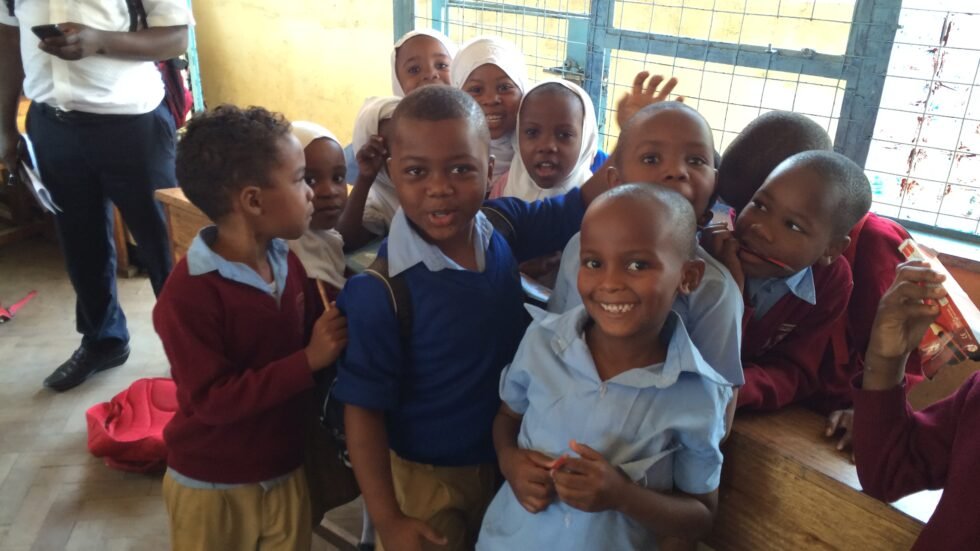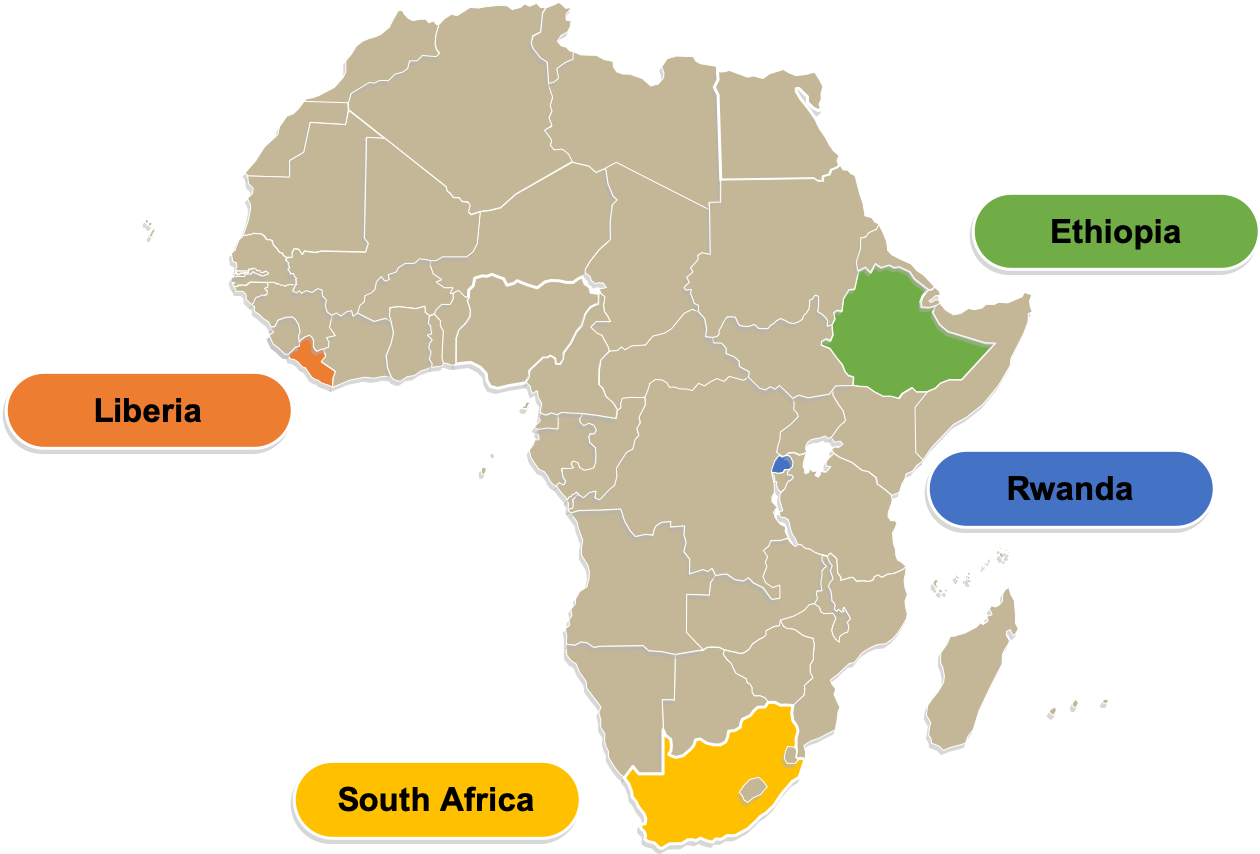The Resources Nook
Discover valuable insights into early childhood data and measurement with our collection of blogs, reports, presentations, articles, and briefs curated by ECD Measure and our esteemed partners.
Measuring Early Learning Quality Through an Easy-to-use Checklist in Colombia and Liberia
ECD Measure has recently developed the Brief Early Quality Inventory (BEQI) tool, which is designed to capture key components of play-based learning and interactions between teachers and children. Building off of research from other ECE quality tools, including our team’s extensive experience with the Measuring Early Learning Environment (MELE) tool of the MELQO project, we recognized the need for simpler ways to gather context-specific evidence on quality environments.
Teachers, Partnership, and Data in Lesotho: How Do Early Childhood Stakeholders in Lesotho and Tanzania Define “Quality” in Pre-primary Programs
The ECD Measure team, in partnership with in-country consultants, recently completed a project to explore how early childhood stakeholders in Lesotho and Tanzania define quality pre-primary programs.
Measuring Quality of Pre-primary Education in Sub-Saharan Africa: Evaluation of the Measuring Early Learning Environments Scale
Measurement of quality in early childhood education (ECE) helps shape policy and practice, yet few studies have examined the adaptation and resulting psychometric properties of ECE quality measures when used in low- and middle-income countries. This study reports on the adaptation of the Measure of Early Learning Environments scale (MELE-A), developed as part of the Measuring Early Learning Quality & Outcomes (MELQO) Initiative, in one sub-Saharan African country.
Reflecting on progress from the CPDMA taskforce
Four CPDMA taskforce countries (Liberia, Rwanda, South Africa and Ethiopia) have been working together since early 2019 to map out their ECE data systems and develop plans to use data to improve outcomes for children.
SEL and PSS Measurement and Assessment Tools in Education in Emergencies
This project aims to identify and code, analyze and describe existing social emotional learning (SEL) and psychosocial support (PSS) measurement/assessment tools and guidance documents being used in the international Education in Emergencies (EiE) sector.
Data for Impact in ECE Technical Guide
Guide developed through the Consortium on Pre-Primary Data and Measurement in Africa (CPDMA). Outlines a framework for developing and using high-impact data in ECE systems.
CPDMA Convenes Consortium-wide Conference in Kigali, Rwanda
CPDMA and ECD Measure convened ECE Data Utilization to Impact Change Conference in Kigali, Rwanda. In the spirit of “what gets measured gets done,” the ECD Measure team provided context for the meeting around its “Data for Impact Framework,” which outlines the process for defining how early childhood data can be used for impact in early childhood education systems.
CPDMA Meeting Report: Kigali, Rwanda
Description: Meeting report for Consortium on Pre-primary Data and Measurement in Africa (CPDMA) meeting convened in Kigali, Rwanda in November 2019.
Educação Infantil em Boa Vista
Results from early childhood study in Boa Vista, Brazil (in Portuguese).
Global Patterns & Local Influence: Deciphering Quality in Pre-Primary
Presentation on MELQO addressing the following questions: Describing Environments: What’s it like to be in pre-primary in various countries? Universal vs. Local: How do children’s developmental trajectories vary or look the same in various parts of the world?
Learning Outcomes: Fursa Kwa Watoto
The study assesses pre-primary children to gather preliminary evidence on learning and development and explore whether Fursa kwa Watoto (FkW) leads to improved student outcomes among pre-primary students.
ECD Measure and CPDMA Taskforce teams meet in Mauritius for ECD Leadership Capacity Building Workshop
We all need feedback to know how we’re doing. As more and more countries recognize the importance of early childhood education, data are essential for charting an effective path forward. we were pleased to showcase progress in data and measurement at the ADEA Inter-Country Quality Node’s Early Childhood Development Leadership Capacity Building Workshop. ECD Measure recently joined ADEA, AfECN, AU, and CPDMA Taskforce to attend ECD Leadership Capacity Building Workshop in Mauritius
Liberia begins its journey toward a pre-primary data system
CPDMA Member Spotlight on Liberia. Liberia is at a critical moment for early childhood education. According to the 2019 UNESCO Global Education Monitoring Report, 88 percent of Liberian children are enrolled in an ECE program at least one year before primary school entry. However, it is common for overage children to enter ECE programs; nearly 50 percent of pre-primary learners are 6 years of age or older.
The Measuring Early Learning Quality & Outcomes initiative: purpose, process and results
Describes the process of creating the MELQO tools, summarizes results from psychometric evaluation, and provides examples of how the data have been used to reveal patterns of inequity and levels of learning and classroom quality.
SFSU Presentation: Measuring Early Learning Quality and Outcomes (MELQO) Project
Presentation on MELQO results.
Bernard vanLeer Foundation Get ready for data toolkit
A tool to guide data use to serve babies, toddlers, and the people who care for them.
Quality Standards and Quality Assurance Systems for Pre-Primary Education
In recent years, government and parental investments in pre-primary education have expanded dramatically in many parts of the world. Despite the overall increase in the number of children accessing pre-primary education, in many countries, pre-primary enrollment rates remain unequal, with more access to pre-primary education for children in higher-income countries and families. This publication is a white paper on early childhood service quality standards and quality assurance systems for pre-primary education.
A Toolkit for Measuring Early Childhood Development in Low- and Middle-Income Countries
Resource for researchers, evaluators, and program personnel to assess ECD in low- and middle-income countries—either for planning and evaluating interventions, monitoring development over time, or conducting a situation analysis.
Global movement for assessments of early childhood development and what’s missing in SDG4.2
Article about international Early Childhood Development (ECD) measurement.
Toward Data-Driven Education Systems: Insights into using information to measure results and manage change
The ultimate objective of evidence-based policymaking in the education sector is to fuel progress toward three outcomes: improved student learning, increased equity, and stronger accountability relationships among policymakers, school administrators, teachers, parents, and students. This publication summarizes information decision-makers use to measure results and manage change in the education sector.





















